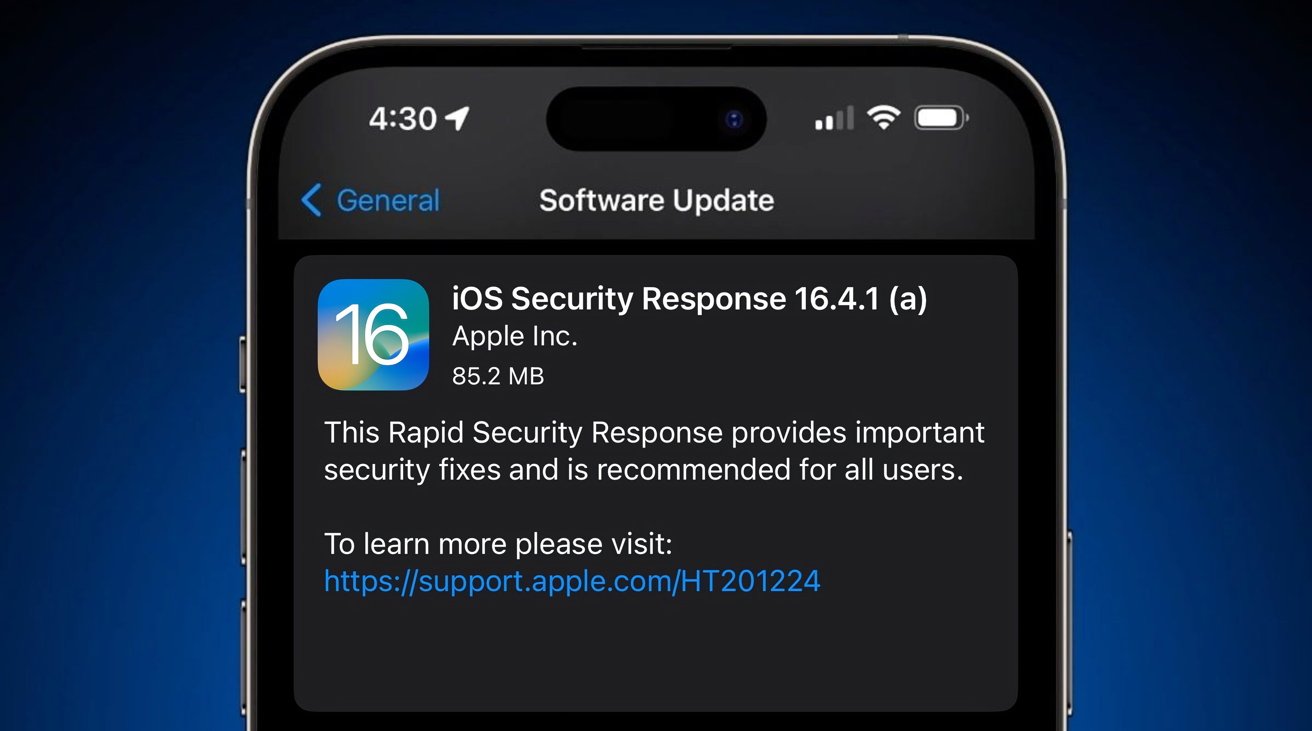Apple has released its first Rapid Security Response update to the public, updating iOS 16.4.1 and macOS 13.3.1 with security fixes — but the roll-out isn’t that smooth as of yet.
A Rapid Security Response update is a special kind of update that doesn’t require users to perform a normal software update. Instead of a lengthy update procedure, the update can instead be quickly downloaded and installed within minutes.
Tested in beta, the updates are intended to provide important security changes between the regular software updates. This can include fast fixes for urgent security issues, such as actively used exploits against Apple’s software, with the RSR changes to mitigate risks of infection or data loss.
We’ve tested it across multiple devices. So far, as of 1:50 PM ET, every attempt to update has been met with a warning that the device cannot verify the security response. The warning goes on to say that the device is “no longer connected to the internet” when that isn’t the case.
This may be a case of server load, but the download is very small. AppleInsider has reached out to Apple for comment.
RSRs are only to be delivered to the latest versions of iOS, iPadOS, and macOS, and do not apply to earlier releases.
When an RSR is applied, the update adds a letter to the end of the version number, for example turning iOS 16.4.1 to iOS 16.4.1 (a).
According to a new support document, the default setting is for the RSR to be applied automatically, and for users to be prompted to restart the device when required. RSR installation can be disabled, with the content of the RSR rolled into the next standard software update.





